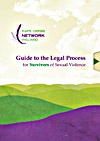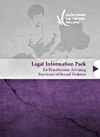You can help prevent Sexual Violence in everyday ways. Being part of the solution isn’t as difficult as you might think. One way that you can do that is to recognise situations you witness that might support or lead to sexual violence or are an act of sexual violence. You can make the decision to take action.
Spotting the opportunities for action:
Sometimes normal and fairly harmless actions and behaviour can make you feel uncomfortable. Don’t dismiss that feeling.
It’s important to ask yourself what makes you uncomfortable with this situation. It could be the tone, the context, the audience, or something you know about that person which makes it not ok now. For example you might find a sexualised joke told to a group of friends very funny but when the same joke is told to children, or in a work setting, you find it inappropriate.
Other times activity and behaviour can be clearly wrong or indeed illegal.
For example someone:
- Grabbing or touching someone sexually without their consent eg, grabbing a girl’s breast as she passes,
- Targeting underage people for sexual activity, under our laws if you believe a child has been abused or is at risk you may be required to alert the authorities.
- Acting to increase someone’s vulnerability through providing/encouraging drink and/or drugs to enable what you feel will be non-consensual sexual activity
- Being overly persistent in sexually pursuing someone who is indicating they are not interested and/or seem uncomfortable or frightened
- Manipulating someone into a situation where it is difficult for them to refuse sexual activity
- Describing to you sexual activity where the other person/s had not consented eg sex with someone who was unconscious etc.
The offender may not be aware that their behaviour is harmful, or they may believe that because no-one objects it is acceptable, or they may not care about others attitudes. Sometimes your actions can let someone know that their behaviour is not acceptable.
Taking action:
You will have to use your judgement and common sense on when and how you choose to challenge behaviour and attitudes.
Actions may include anything from:
- not laughing along,
- stating that you are not ok with what they said/did,
- asking a person being targeted if they are ok,
- seeking support for action from another bystander and or authority figures such as club bouncers
- telling the person’s friends that you are not ok with their friend’s behaviour
…to
- calling a support agency – an RCC – to discuss your concerns
- talking to another adult about your concerns
- calling the Gardaí.
The action you take will depend on:
- Who the person is – a close friend, a passing acquaintance, a work colleague or a stranger,
- What the trigger is – an inappropriate joke or a disclosure of an act of sexual violence,
- When you have the opportunity to act – can you intervene now to stop something escalating or are you becoming aware of something after the fact?
Remember this might take some practice, especially if you are changing how you think and behave. Becoming aware is a very important first step.
You won’t always feel safe, able or ready to speak up, afterwards you might find it useful to discuss the situation with friends or ring a rape crisis centre about what you might have done differently.
Your actions matter – don’t let your silence be your action.

 Guide to the Legal Process for Survivors of Sexual Violence
Guide to the Legal Process for Survivors of Sexual Violence Legal Information Pack for Practitioners Advising Survivors of Sexual Violence
Legal Information Pack for Practitioners Advising Survivors of Sexual Violence